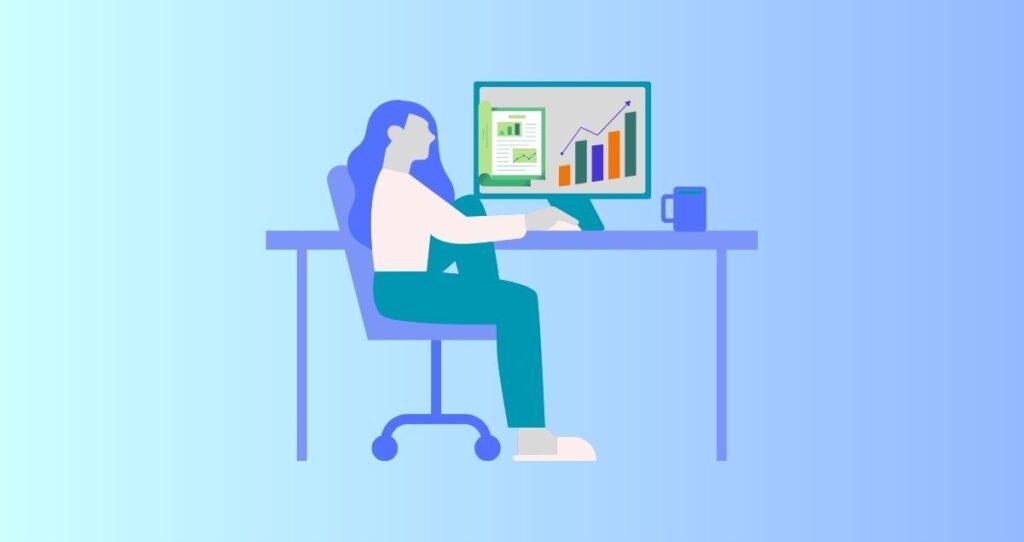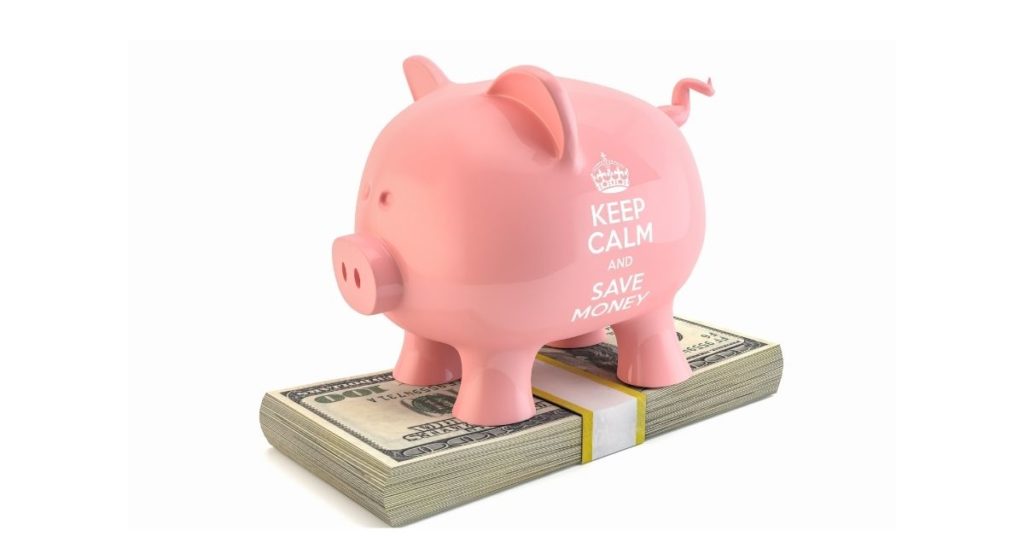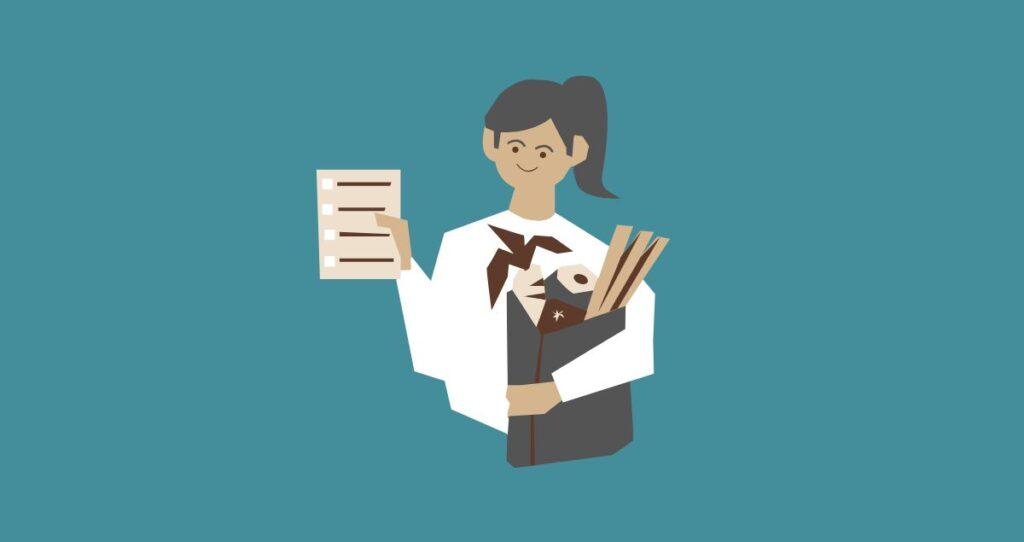Living paycheck to paycheck is a reality for many, with bills always knocking at the door and little room for emergencies. According to a recent survey by LendingClub, 64% of full-time workers in the U.S. said they live paycheck to paycheck. The good news is that it’s possible to build a savings account even when the budget is tight. In this article, we’ll explore 15 effective strategies to save money when living paycheck to paycheck, including tracking expenses, creating a budget, cutting expenses, and increasing your income. Whether you’re looking to save for a future goal or simply want to have a safety net, these tips will help you on your journey to financial stability.
1. Track your expenses
One effective way to save money when living paycheck to paycheck is to track your expenses. This allows you to see exactly where your money is going and identify areas where you can cut back. There are many apps and tools available that make tracking your expenses easy and convenient.
2. Create a budget
Once you’ve tracked your expenses for a few weeks or months, you can use the information to create a budget. Start by listing all of your monthly income and expenses, including bills, groceries, random purchases, insurance, and entertainment. From there, identify areas where you can reduce expenses, such as eating out less or canceling subscription services you don’t use. For example, you can easily cancel or keep only one streaming service such as Netflix and cancel all the other ones.
It may take some time to adjust to living on a budget, but the benefits are worth it. Not only will you be able to save money when living paycheck to paycheck, but you’ll also have a better understanding of your finances and the ability to plan for future expenses. Make tracking your expenses and creating a budget a regular habit to achieve financial stability and peace of mind. Once you have a budget in place, you can move on to cutting expenses even further to stretch your paycheck.
3. Cut down expenses
To truly maximize your savings when living paycheck, cutting expenses is a crucial step. It’s not always easy to give up something when living on a tight budget, but there are plenty of ways to reduce your expenses without sacrificing too much. Start by taking a look at your budget and identifying areas where you can cut back. This could mean canceling subscription services you don’t use, cooking more meals at home instead of eating out, or finding cheaper alternatives for things like your cell phone plan or gym membership.
It’s important to remember that every little bit counts. Even cutting back on small expenses like daily coffee runs, daily cigarette purchases, alcohol, or impulse purchases can add up over time. And once you’ve identified areas to cut back on, go ahead and eliminate most of those expenses. It may not be easy at first, but with dedication and a little bit of creativity, you can stretch your paycheck even further and save money for long-term goals.
4. Find ways to increase your income
It is often difficult to save money when living paycheck to paycheck. Also, due to this financial constraint, most people find themselves in serious financial hardships when emergencies occur. That is why you need to supplement your current income by getting either a part-time job or simply picking up a side gig. This could mean picking up a side hustle, negotiating a raise at your current job, or exploring new career opportunities.
Make sure that you pick a side job that works in your favor and doesn’t take on too much to avoid burnout and further escalate your financial stress. You need a balance between work and lifestyle.
5. Take advantage of discounts and promotions
Trying to save money when living paycheck to paycheck comes with its challenges. Typically, your income runs out after purchasing a few things here and there. That is why you need to be smart about what you buy and how you buy them.
One effective way to save money when living paycheck to paycheck by shopping smarter is to take advantage of discounts and promotions that can help you save money on everyday expenses. This could mean signing up for loyalty programs at your favorite stores, using coupons or promo codes for online shopping, or taking advantage of special offers for services like cable, internet, or streaming subscriptions.
Companies are always offering incentives to attract new customers or retain existing ones, so it’s worth doing some research to find out what deals are available. For example, many credit cards offer cashback, miles, or rewards points for purchases made with the card. You can also look for discounts on gas, groceries, and other essentials by checking out apps like Ibotta or Rakuten. If your electricity provider offers a lower off-peak rate, sign up for this service by shifting your electricity usage to non-peak hours.
Of course, it’s important to be strategic about which promotions you take advantage of. Just because something is on sale doesn’t mean you should buy it if you don’t need it. Before making a purchase, consider whether it’s something you would still buy at full price and whether the discount is significant enough to justify the expense and the hustle of getting it.
6. Reduce your utility bills
Reducing your utility bills is a great way to save money while living comfortably. There are many ways to do this, from turning off lights when you leave a room to unplugging electronics when they’re not in use. You can also switch to energy-efficient light bulbs and appliances, which use less electricity and help reduce your overall energy consumption. In addition, you can open your windows in the summer or seal them tight in the winter to lower your heating and cooling electricity usage.
Another effective strategy to save money on electric bills while living paycheck to paycheck is to adjust your thermostat settings. By setting your thermostat a few degrees lower in the winter and a few degrees higher in the summer, you can save a significant amount on your heating and cooling bills. You can also consider investing in a programmable thermostat, which allows you to set different temperatures for different times of day, so you can heat or cool your home only when you need to.
Reducing your water usage is another way to save on utility bills when living paycheck to paycheck. Simple actions like turning off the faucet while brushing your teeth or taking shorter showers can add up to big savings over time. You can also install low-flow showerheads and faucets, which use less water without sacrificing water pressure.
By implementing these energy-saving strategies, you can cut your utility bills and save money each month. This extra money can then be put towards your long-term financial goals, like paying off debt or building up your emergency fund.
7. Cook at home
Cooking at home is one of the easiest and most efficient ways to save money when living paycheck to paycheck. Eating out can quickly add up, and even grabbing a coffee or snack on the go can end up costing much more than making it at home. When you cook at home, you have more control over ingredients, portion sizes, and preparation methods, so you can save money and eat healthier at the same time. Plus, cooking at home can be a fun and creative way to unwind after a long day or spend quality time with loved ones.
By making a meal plan and grocery shopping strategically, you can save even more money. Another strategy to stretch your food budget and save more money when living on a tight budget is to buy in bulk, choose seasonal produce, and use leftovers creatively. And if you’re short on time or energy, consider using a slow cooker or meal delivery service to make meal prep easier.
8. Use coupons and vouchers
Using coupons and vouchers can be a great way to save money when living paycheck to paycheck. Many stores offer coupons that can be used on a variety of products, from groceries to household items. It’s also worth checking online for discount codes and vouchers that can be used when shopping online or in-store.
By using coupons and vouchers, you can save money on your everyday purchases and make your budget go further. Buying food and items at discounts becomes extremely helpful especially when you’re struggling to make ends meet each month. Be sure to check the expiration dates on your coupons and vouchers and only use them on items you need.
9. Avoid unnecessary purchases
To stretch your paycheck a little further, it’s important to be mindful of your spending habits. While using coupons and vouchers can be helpful, avoiding unnecessary purchases is equally important. Rather than immediately buying something that catches your eye, take a moment to ask yourself if it’s something you truly need or just a want. By making conscious choices with your money, you can save more in the long run and improve your financial situation.
One effective strategy for avoiding unnecessary purchases is to make a list before heading to the store. This can help you stay focused on the items you need and prevent you from making impulse buys. Additionally, consider waiting before making a purchase. Give yourself a day or two to think about whether or not you need the item before making a decision.
10. Buy generic or store-brand products
Buying generic or store-brand products is another effective way to save money when living paycheck to paycheck. While it may be tempting to opt for name-brand items, the truth is that they often come with a higher price tag and do not offer extra benefits beyond what they are intended for. By choosing generic or store-brand products instead, you can save a significant amount of money and live comfortably on a low income.
One of the benefits of buying generic or store-brand products is that they are often just as good as their name-brand counterparts. Many of these products are made by the same manufacturers and have the same ingredients, but are sold under different labels. This means that you can enjoy the same quality without having to pay extra for the brand name.
When shopping for generic or store-brand products, be sure to compare prices and read the labels carefully. Some products may be cheaper than others, but may also contain lower-quality ingredients or be packaged in smaller quantities.
11. Shop second-hand
Shopping second-hand is another great way to save money when living paycheck to paycheck. Thrift stores, consignment shops, and online marketplaces like eBay and Facebook Marketplace offer a treasure of gently used items at a fraction of their original cost. From clothing and shoes to furniture and home decor, shopping second-hand can help you stretch your budget further.
Before you head to the mall or click “add to cart” on your favorite online retailer, try checking out your local thrift store or consignment shop first. You never know what kind of hidden gems you might find. And if you’re worried about the quality or cleanliness of second-hand items, don’t be. Many thrift stores and consignment shops carefully inspect and clean each item before it hits the shelves.
Shopping second-hand isn’t just good for your wallet, it’s also good for the environment. By buying used items instead of new ones, you’re helping to reduce waste and conserve resources. Plus, it can be a fun and rewarding way to discover unique and one-of-a-kind treasures.
12. Cancel subscriptions and memberships you don’t use
Canceling subscriptions and memberships you don’t use is another simple way to save money when living paycheck to paycheck. In today’s age of convenience, it’s easy to sign up for a monthly subscription to a streaming service, a gym membership, or even a magazine subscription without giving it much thought. But, these monthly fees can add up quickly and eat away at your budget. Take a moment to review your monthly bills and see if there are any subscriptions or memberships that you no longer use or need. By cutting out any unnecessary expenses, you can free up more money in your budget for the things that matter the most.
13. Take care of your belongings
Taking care of your possessions may seem like common sense, but it’s a practice that many people overlook. Whether it’s your car, your clothes, or your electronics, everything requires some level of maintenance to keep it functioning properly. By neglecting your belongings, you risk having to shell out more money in the long run for repairs or replacements. This is why taking care of the things that you own is one of the most effective ways to save money when living paycheck to paycheck.
One simple way to take care of your belongings is to follow the manufacturer’s instructions for maintenance. This may include regular oil changes for your car, cleaning your clothes according to the care label, or keeping your electronics at the right temperature to prevent heating and damage. By taking these small steps, you can extend the lifespan of your possessions and save money on repairs or replacements.
14. Plan your purchases
It’s easy to get caught up in impulse buying or sales that seem too good to pass up. However, if you take the time to plan your purchases, you can avoid overspending and make sure you’re getting the best value for your money.
One way to plan your purchases is to create a budget and make a shopping list based on that budget. Determine how much money you can afford to spend on non-essential items each month and make a list of the things you want to buy. Prioritize the items on your list based on how important they are to you and how much you need them. This will help you avoid overspending on things that aren’t necessary and make sure you’re getting the things you truly need.
Another way to plan your purchases is to wait for sales or discounts. If you have your eye on a particular item, keep an eye out for sales or discounts that may be coming up.
By planning your purchases, you can make sure you’re getting the most value for your money and avoid overspending. This can help you stretch your budget further and live comfortably while living paycheck to paycheck.
15. Start an emergency fund
In addition to planning your purchases and waiting for sales, it’s important to start an emergency fund when living paycheck to paycheck. Emergencies such as car repairs, medical bills, or a loss of a job can come up unexpectedly, leaving you financially strained. By setting aside some money each month into an emergency fund, you can prepare for these unexpected expenses and avoid taking on additional debt.
Even if you can only save a small amount each paycheck, saving an emergency fund can provide a sense of security and help you avoid financial stress. Consider setting up automatic transfers from your checking to a separate savings account designated for emergency expenses. This way, you won’t have to remember to manually transfer money each month, and the money will be less accessible, reducing the temptation to dip into it for non-emergency expenses.
While it may take some time to build up a comfortable emergency fund, every bit counts. Start small and gradually increase your contributions as your budget allows. By doing so, you’ll be better prepared for unexpected expenses that may come your way. Your emergency fund should cover 3 to six months of expenses.
The bottom line
Saving money when living paycheck to paycheck may seem impossible, but it’s not. By tracking your expenses, creating a budget, cutting expenses, finding ways to increase your income, and taking advantage of discounts and promotions, you can start building your savings account. You can also reduce your utility bills, cook at home, use coupons and vouchers, and avoid unnecessary purchases. Additionally, buying generic or store-brand products, shopping second-hand, canceling subscriptions and memberships you don’t use, etc.
It is all about understanding your finances and carefully planning where the money should be spent. Living paycheck to paycheck also means that a simple emergency can put you in long-term financial hardship. For this reason, you need to have an emergency fund to help you cover unplanned expenses and emergencies.






